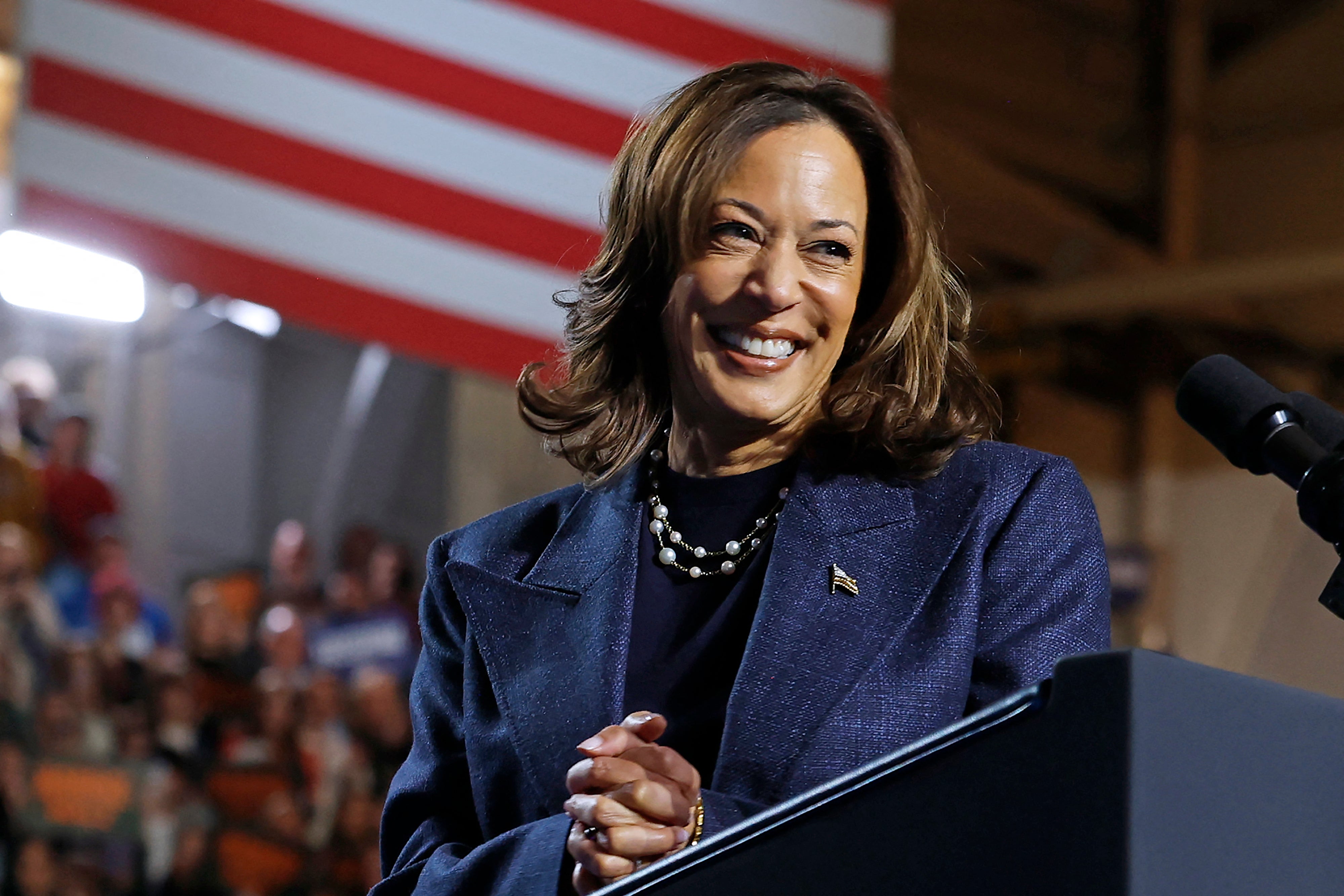Will Arab American voters angry about Gaza cost Kamala Harris the election?
Some Arab Americans have turned their back on the Democratic Party over the Biden adminstration’s unconditional support for Israel’s war in Gaza

In the final days of her campaign, Kamala Harris is making a last-ditch appeal to Arab American voters who have abandoned the Democratic Party over the war in Gaza.
“I will do everything in my power to end the war in Gaza, to bring home the hostages, end the suffering in Gaza, ensure Israel is secure and ensure the Palestinian people can realize their right to dignity, freedom, security and self-determination,” Harris told a rally in East Lansing, Michigan, on Sunday.
Harris’s urgency comes as recent polls of Arab American voters — usually a reliably Democratic voting bloc — show a large number may either stay at home or vote for her rival, Donald Trump.
An Arab News/YouGov poll of Arab Americans last month found 45 per cent of respondents said they are most likely to vote for Donald Trump, 43 per cent Harris. The pair were tied at 38 per cent in the same survey when respondents were asked who would be better for the Middle East “in general”.
Joe Biden received around 59 per cent of the Arab American vote in 2020.
In the crucial swing state of Michigan, home to more than 200,000 Arab American voters, they could decide the presidency — especially since polls show Harris and Trump neck-and-neck in the state. Biden won the state by 154,000 votes in 2020.
The opposition has been a year in the making. President Biden has faced a fierce backlash from Arab American voters over his unconditional support for Israel’s war in Gaza, which was sparked by a brutal attack by Hamas in southern Israel that left 1,200 people dead.

Harris initially signaled a different tone on the conflict after taking over from Biden at the top of the ticket, but she has failed to articulate how she would do anything differently if she were to become president.
“We are joined today by leaders of the Arab American community, which has deep and proud roots here in Michigan, and I want to say this year has been difficult, given the scale of death and destruction in Gaza and given the civilian casualties and displacement in Lebanon,” Harris said at the East Lansing rally.
It was an echo of what she said when protesters interrupted her speech at a rally in Ann Arbor, Michigan, last month, chanting, “Israel bombs, Kamala pays, how many kids have you killed today?” Harris responded, “Hey guys, I hear you,” and, “We all want this war to end as soon as possible.”
But more than a year into the war, those words still fall short of what many in the community wanted to hear.
Many want Harris to commit to an arms embargo on Israel to force an end to the war, which has killed more than 43,000 Palestinians. Israel recently extended its war into Lebanon to target Hezbollah, killing more than 3,000 people in the process.

The US government is Israel’s strongest ally, providing political and material support for decades. The US gives Israel around $3.8bn a year in aid for its military and missile defense systems, and has given more than $130bn since Israel’s founding in 1948.
Following the Hamas massacre of 1,200 people on 7 October, which sparked the latest Gaza conflict, the Biden administration has twice passed Congress to send Israel weapons worth hundreds of millions of dollars to carry out its war and asked Congress to approve a further $14.3bn in funding.
As the war has continued, Biden has signaled his unease at the death toll, but has refused to use billions of dollars in US military aid as leverage to pressure the Israeli government to change course.
Trump, who has also offered up his full support for Israel’s war, has nonetheless tried to capitalize on disaffection among Arab Americans.
On Friday, he visited Dearborn, Michigan, the heart of the Arab American community, where he vowed to end the conflict in the Middle East without saying how.
Join our commenting forum
Join thought-provoking conversations, follow other Independent readers and see their replies
Comments
Bookmark popover
Removed from bookmarks